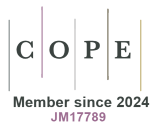Economic Evaluation of Ipilimumab in First Line Treatment of Advanced Melanoma in Italy
DOI:
https://doi.org/10.33393/grhta.2016.412Keywords:
Advanced melanoma, First line treatment, Ipilimumab, Micro-costingAbstract
Background Ipilimumab, a fully human monoclonal antibody that blocks CTLA-4 to promote anti-tumour immunity, was the first treatment in metastatic melanoma to show a significant survival benefit. Methods A three-health-state partitioned survival model was developed to assess ipilimumab 3 mg/kg compared to dacarbazine and vemurafenib in first line therapy of advanced melanoma treatment-naive patients in Italy. The outcomes considered were costs, life years (LYs) and quality-adjusted life years (QALYs). Given the lack of trials assessing ipilimumab 3 mg/kg in this subgroup of patients, the efficacy was derived from a dataset of chemo-naive patients. Patient's management costs were estimated based on a micro-costing approach and the cost of adverse events based on both outpatient and inpatient care. Utilities considered were elicited from ipilimumab's clinical trials. Results Basecase results showed that ipilimumab was both more costly and more effective than dacarbazine, with ratios of €38,345/LYs and €49,466/QALYs. By contrast, results vs. vemurafenib showed a marginal increase in health outcomes accompanied by a saving of €32,999, thus making ipilimumab the dominant strategy over vemurafenib in the base-case analysis. Sensitivity analysis showed overall robustness of the model. Conclusions Treatment with ipilimumab showed better results in terms of LYs and QALYs against both comparators. Moreover, ipilimumab was the dominant strategy compared to vemurafenib, thus highly likely to bring both health benefits and cost savings in the Italian setting.










